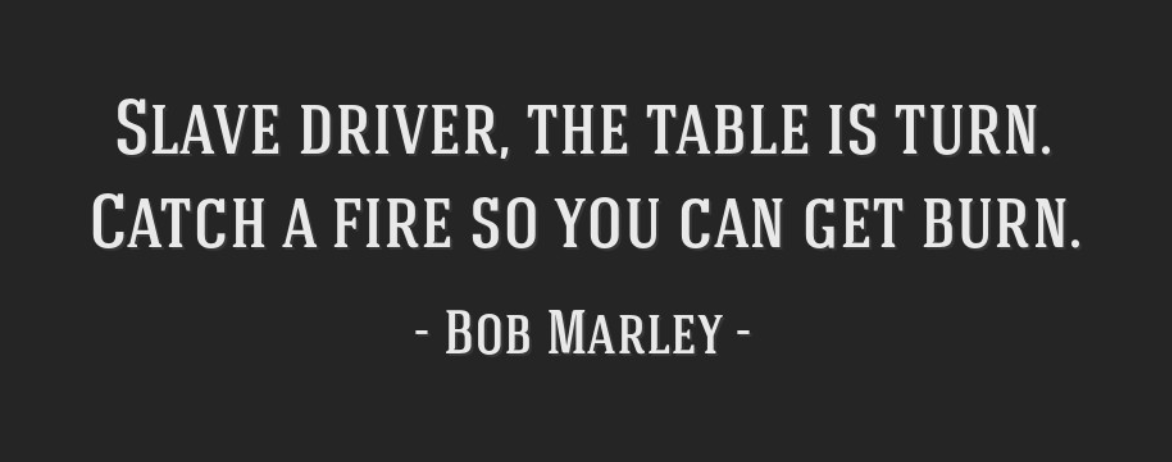“Slave Driver” fra Bob Marley & The Wailers’ 1973 album, Catch A Fire!
“Slave Driver” – The Wailers – Roserock, Horten, Norway
The Story Behind Bob Marley’s “Slave Driver”
“Slave Driver” is one of Bob Marley’s most politically charged songs, featured on the 1973 album Catch A Fire by The Wailers. The track is a powerful meditation on the legacy of slavery, colonialism, and the ongoing struggles faced by people of African descent, especially in Jamaica and the broader African diaspora.
Historical and Personal Roots
The song draws directly from Marley’s own heritage and the collective memory of slavery in the Caribbean. Marley, like many Jamaicans, was a descendant of enslaved Africans, and his music often references this lineage as both a source of pain and a call to resistance. The lyrics of “Slave Driver” evoke the brutal realities of the transatlantic slave trade-“Every time I hear the crack of a whip, my blood runs cold. I remember on the slave ship, how they brutalize the very souls”-connecting historical trauma to contemporary conditions.
False Notions of Freedom
A central theme in “Slave Driver” is the critique of so-called emancipation. Marley highlights the illusion of freedom granted to Black people after the abolition of slavery, pointing out that many remained “chained in poverty.” The line “Today they say that we are free / only to be chained in poverty” underscores the persistence of economic and social oppression, even after formal emancipation. For Marley, the end of slavery did not bring true liberation, as systemic inequities and exploitation continued.
Call to Resistance and Revolution
True to roots reggae, Marley’s lament is not just about suffering but also about awakening and resistance. The refrain “Slave driver, the table is turn / Catch a fire, so you can get burned!” signals a reversal of fortunes. Marley suggests that the oppressed are becoming aware of their condition (“waking up from their ‘illiteracy’”) and are ready to challenge the system that has kept them down. The phrase “catch a fire” is both a warning and a rallying cry, symbolizing the potential for revolutionary change.
Broader Context: Roots Reggae and Pan-Africanism
“Slave Driver” fits within the broader context of roots reggae and Rastafari ideology, which often invoke African history and the struggle against “Babylon”-a term for oppressive systems and societies. Marley’s use of the present tense in the lyrics is deliberate, linking the past horrors of slavery to ongoing struggles, and suggesting that the fight for freedom is not yet over. This approach serves to empower listeners, encouraging them to see their current struggles as part of a long tradition of resistance.
Cultural Impact and Legacy
The song’s message remains relevant, resonating with audiences around the world as a reminder of the enduring effects of slavery and the need for continued resistance against all forms of oppression. “Slave Driver,” along with other tracks on Catch A Fire, helped establish Marley as a global voice for justice and liberation, drawing attention to the revolutionary potential of reggae music.
“It’s a crime in Bob’s eyes for Black people to believe that they are now free, simply because slavery has been abolished; there are several new factors still ‘chaining’ our people down unfairly, such as abject poverty. He says, however, that now the ‘table is turn’ on the slave driver, as the people are waking up from their ‘illiteracy’ in a revolution against the system…”
Conclusion
“Slave Driver” is more than a song about historical suffering; it is a call to consciousness and collective action. By connecting the history of slavery to present-day struggles, Marley’s work continues to inspire movements for justice, dignity, and true independence.

